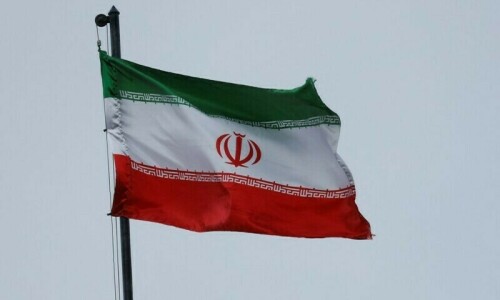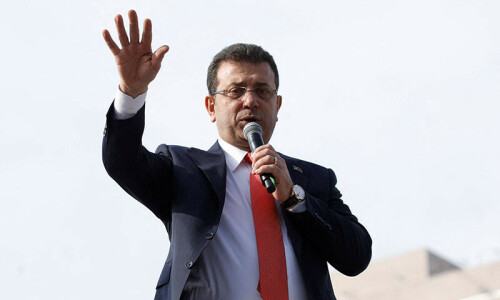While Pakistan’s judicial history has seen some publicity-hungry judges, Justice Faisal Arab, who is set to take the oath as the new chief justice of the Sindh High Court today, is among those who still believe that ‘judges should speak through their judgements’.
Not many people outside Sindh knew of Justice Arab until he was appointed head of a special three-member court to hear the high treason case against former military ruler Gen Pervez Musharraf in November 2013. Despite provocations from Musharraf’s legal team, he was seen to maintain his calm as he led the court proceedings. Even his detractors praised him when he allowed Musharraf’s plea to implicate other abettors in the treason trial.
Senior lawyers like Anwar Mansoor Khan, part of Musharraf’s defence team, had accused Justice Arab of ‘bias’ towards their client during the trial. But Barrister Farogh Naseem, who took over the accused’s legal team at a later stage, rejects that view.
Also read: Musharraf case: Justice Arab hasn’t recused; arrest order stands
“He conducted the proceedings in a very fair manner and without any bias,” says Barrister Naseem, referring to the fact that his client had imposed a state of emergency that led to the removal of several judges, including Justice Arab.
Born on Nov 5, 1955, Justice Arab originally hails from the interior of Sindh. Details on the Sindh High Court website show he graduated in commerce in 1978 from the Government College of Commerce & Economics, Karachi, studied law at the Sindh Muslim Law College and completed his LLB in 1989, enrolling as an advocate of the high court in 1992. In 2005, he was enrolled in the Supreme Court.
He first interned at Fakhruddin G. Ebrahim & Company in 1990, and later worked there for some years before setting up his own law firm. However, in October 2005 he was appointed additional judge of the Sindh High Court. Before his elevation, he worked as the standing counsel for the federation for a year. On Oct 25, 2006 he was appointed a permanent judge of the high court.
A year later, Justice Arab, along with other judges, was deposed when Gen Musharraf declared a state of emergency in the country and promulgated his infamous Nov 3, 2007 Provisional Constitutional Order.
It’s an open secret that not every judge of the superior judiciary was asked to take a new oath under the Oath of Office (Judges) Order 2007 since Gen Musharraf wanted several judges removed. Justice Arab was among those who were approached but he refused to take the oath as a PCO judge.
“He chose his principles over his judicial career,” says a former Sindh High Court judge privy to the offers made to some of the deposed judges by the then chief justice of Pakistan as well as senior government functionaries. Justice Arab was finally reinstated, although he had to take a fresh oath, after more than nine months in August 2008, by a democratically elected government. He was the senior puisne judge of the Sindh High Court. He is due to retire as Sindh High Court chief justice on Nov 4, 2017.
“He is fair and even-handed ... he is not very publicity-oriented,” observes Barrister Khalid Jawed Khan, a senior lawyer and former advocate general for Sindh. “He has the same traditional attitude which a judge should have. He is a low-profile judge.”
Among legal circles, Justice Arab is known for his quick disposal of cases. There are few judges who prefer not to reserve judgements/orders for a long time and can even dictate detailed orders and verdicts in open court. Justice Arab is one of them.
According to senior lawyers, there is a painful trend in all provincial high courts to reserve detailed judgements for a longer period. Reserving judgements for a long time serves no purpose because the case remains pending. The release of a detailed judgement on Musharraf’s petition challenging the rejection of his nomination papers for the May 11, 2013 general elections is a case in point. In April 2013, the Sindh High Court, through a short order, disqualified him from contesting elections. But the detailed judgement was released only a few days ago.
Unlike some of his predecessors, Justice Arab is not known to unnecessarily reserve judgements, as he usually dictates his orders/verdicts in the presence of the counsel for both parties in court.
“His disposal rate is better than that of any other judge ... we believe the overall rate of disposal will improve further during his tenure,” says the Sindh High Court Bar Association’s vice president Yousuf Iqbal.
Admitting that the backlog of cases is a big challenge for the new chief justice, he says the legal fraternity is hopeful that Justice Arab will play his role in filling the vacant seats of judges that would ultimately help in clearing the backlog of cases.
Barrister Khalid Jawed believes that a judge is remembered because of his judgements and not because of the administrative work he has put in. “Administrative work is important but it is more important to keep the emphasis on your core responsibility.”
When asked whether the over two-year tenure of Justice Arab as Sindh High Court chief justice is sufficient for him to leave behind a positive legacy, he says: “Two years is a long period ... you can make a difference in six months.”
Published in Dawn, February 17th, 2015
On a mobile phone? Get the Dawn Mobile App: Apple Store | Google Play
















































